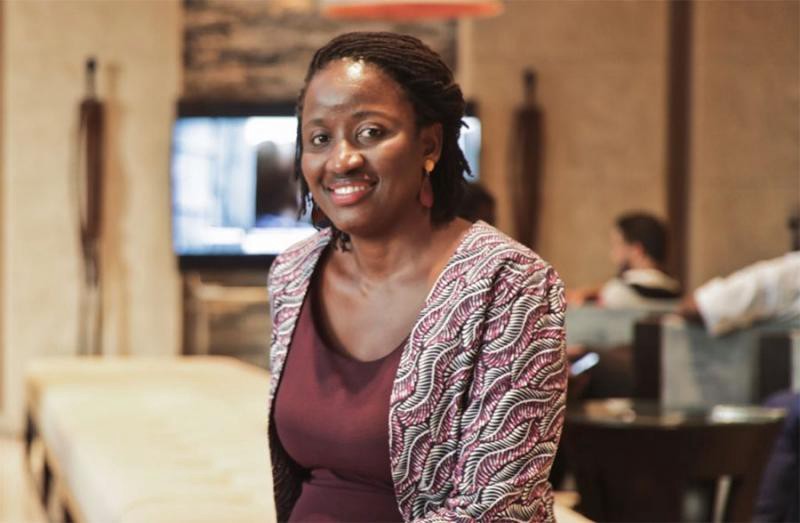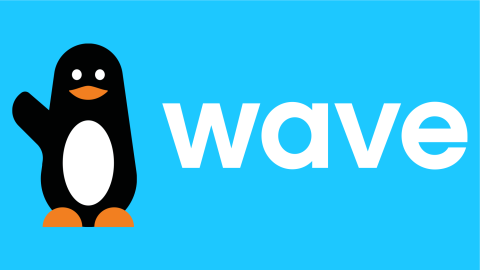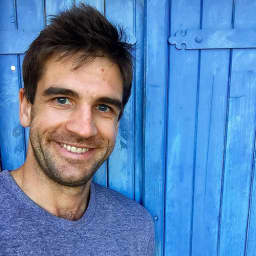Inside The Mind Of Africa’s First Female-led Fintech Unicorn, Wave
Wave has solidified its position as a leading mobile financial service in Africa, especially since attaining the much-coveted unicorn status. In this interview, the startup’s general manager in Senegal reflects on the journey so far, the challenges ahead, and the opportunities that fintech presents. Coura Sène also discusses the difficulties created by fintech’s rapid growth, including competition, dumping claims, and the money transfer environment.

In the world of electronic money, Wave is like an unexpected guest. How did the concept of creating a platform that is now so popular come to be?
Wave was founded out of a goal to provide Africans with modern and cheap mobile banking services. More than half of the population of Sub-Saharan Africa was still unbanked in 2017, when Wave debuted. For example, the stringent banking rate in Senegal, where Wave began operating over four years ago, was around 20% and has remained reasonably consistent since then. Aside from banks, there were a slew of other firms offering mobile-based financial services, but we found a number of roadblocks to their adoption.
Read also Egyptian Fintech Startups Invited To Apply For Fintech Startup Seed Challenge
As a result, we’ve made the firm decision to help make financial inclusion a reality for everyone by leveraging the opportunities provided by regulation and technology to provide financial services that are simple to use and radically inclusive, based on three core values: a technology-enhanced customer experience, the lowest possible prices, and tailored customer service.
We can all observe Wave’s major impact in terms of utilization now, thanks to Senegalese’s widespread adoption of its financial services.
How would you rate the progress accomplished thus far, both in terms of numbers and in terms of growth in the near future?
We are proud of the progress accomplished in Senegal and the sub-region as a whole. In terms of the number of active customers, transactions, and workers, we may claim to be Senegal’s first fintech. In terms of numbers, we’ve gone from zero to serving more than half of Senegal’s adult population at least once a month. We make their life easier by allowing them to send money to their loved ones for a nominal fee, as well as pay their bills and shop for free.
Our Senegalese agent network includes over 14,000 partners, the majority of which are small business owners who benefit from our product’s high dynamism by receiving very competitive remuneration.
Read also Fintech Startup Wave Puts Orange Money’s Business Model In Cote D’Ivoire Under Threat. Here’s How
Wave directly employs almost 700 young Senegalese and indirectly employs over 1,200 young Senegalese. These data show that Wave has a considerable presence in the Senegalese economy after only four years of existence, and that it is destined to become one of the country’s top firms.
The recent financing of $200 million with internationally known investors, which took place in July, was a recognition of the quality of the progress made and a ticket to allow us to consolidate and expand our activities in Senegal to all the countries that make up the sub-region. In addition, we are now present in Côte d’Ivoire, Mali, Burkina Faso, and Uganda.
What’s new in your financial technology?
Our fintech Wave is a Senegalese fintech company that works with UBA and Ecobank banks to provide mobile phone-based financial services. As a result, it is nothing out of the ordinary and falls within the Central Bank’s well-defined regulatory framework.
Wave’s success, on the other hand, can be attributed without a doubt to fundamental changes in the way its financial services are given to Senegalese.
We provide the same service, but in a unique way! I’ll also add that we accomplish it with greater ease and simplicity for the client. We are a true fintech firm, which means we are a technology company that employs technology to simplify the customer experience and journeys.
As another novelty, we are delighted to have contributed to putting financial inclusion back at the forefront of all electronic money players’ plans. Indeed, the tariff is a critical component of financial inclusion and payment digitisation. When it’s high, it functions as a deterrent and an incentive to keep using cash.
Our very competitive and radically inclusive rates have allowed us to significantly reduce the usage of cash in entire sectors of the economy, allowing economic operators in sectors like as fisheries and agriculture, for example, to prefer the low-cost use of our services over cash.
Wave is securely anchored at all of Senegal’s fishing docks, from Nguet-Ndar in the north to Kafountine in the south, as well as all of the country’s major marketplaces, including the “Loumas,” or weekly markets, in distant areas.
Wave, unlike its predecessors, entered Senegal from the inside, prioritizing people who were previously unable to access traditional financial services. It was also the first partner of legacy businesses, assisting them in digitizing their transactions.
The active mobile account market in the WAEMU zone, according to Max Cuvellier, head of mobile development at the GSM Association, is estimated to be near 40 million. Is this rapid expansion heralding new opportunities or posing new threats?
The significant growth in the mobile sector is, of course, a source of new prospects for a fintech like Wave, whose goal is to financially integrate everyone; the possibility is to allow all of these mobile account holders to do financial transactions using their phones.
Wave has demonstrated its potential to generate quick growth, and our performance, which includes user interaction, has persuaded investors to declare Wave the first unicorn in Francophone Africa, with a market capitalization of over $1.7 billion. Despite the fact that the company has only been in operation for nearly four years, the development potential are still many and promising. In Sub-Saharan Africa, we still have a lot of services to build and a lot of people to include.
If you know the industry is unstable, are you concerned that a strong competitor may come in and take your place? We think of your older Wari, for example, which was nearly wiped off the map in Senegal? Do you have a plan in place in case of a growth problem, which is always a possibility?
We are confident in our model and product, and we recognize that there is opportunity for a large number of participants. We believe that as long as we continue to deliver excellent customer service and operate in strict accordance with regulations, we will remain the market leader in Senegal. Competitiveness and the ability for new entrants to enter an ecosystem are especially crucial in the sphere of technical innovation and digital transformation, because they can assist spark creativity and rejuvenate a market.
Given our history, slackening is not in our DNA, and we maintain continual touch with and listen to our clients in order to provide them with the best possible service.
You’re frequently compared to Orange Money, which is primarily and principally a Telecom subsidiary. A sense of rivalry, if not outright adversity, developed. Is it really necessary? How far will it be able to go?
They are correct in comparing us to Orange Money (OFMS), a fintech that is also a subsidiary of Sonatel, a telecommunications firm. Competitors are expected to compete to deliver the greatest service to their clients. This rivalry, however, must be fair and adhere to the laws of unfair non-competition.
Access to telecommunications resources is a critical issue for all fintechs, whether they are subsidiaries of telephone companies or not. A fintech, for example, must provide transaction notifications to its consumers via SMS, and it must also set up a customer service that is free of charge to the end customer. The following are the questions to consider: do all fintechs have equal access to these telecom resources? What are the costs of their access? Are these pricing comparable to those offered by telecom companies’ fintech subsidiaries? As a result, is there healthy and fair competition to provide Senegalese with the greatest financial services? Is it possible for a 100 percent local startup to succeed? Isn’t it hampered by expensive telecom costs and conditions?
Orange is frequently chastised for its French origins. What explains why we don’t level the same critique at you, given that Wave, which was resident in Dakar in 2016, is a 2011 startup founded by Drew Durbin and Lincoln Quirk in the United States?
In 2011, Drew and Lincoln founded Sendwave, a company that specializes in international money transfers from the United States to East Africa. It is currently part of the World Remit organization, which is a key player in international money transfers. They founded Wave in Dakar in 2016 with the goal of contributing to the development of financial services in Africa.
Wave Mobile Money, on the other hand, is a Senegalese private company, incorporated in Senegal, and run by a Senegalese woman, with over 700 Senegalese employees out of approximately 1,600 mostly African employees dispersed across five continents, with 90% of them in Africa.
Wave’s clientele and partners are Senegalese, and the company pays its taxes in that country. Two of the largest pan-African banks are Wave’s partners. Wave’s employees are also very close to clients, and the Wave solution was created in Senegal, by Senegalese, for Senegalese, and is thus perfectly tailored to our needs. As a result, the Senegalese have adopted the Wave product and made it their everyday companion.
Apart from Senegal, Wave now operates in several other African nations, including the Ivory Coast, Mali, Burkina Faso, and Uganda. Wave is proud of the journey it has taken since Dakar, with the help of American founders as well as East African collaborators (Kenya, Uganda, etc.) who have not only the ability to mobilize funds on a global scale, but also a futuristic vision of payment in West Africa and technology that meets international standards.
You’ve been accused of undermining the money transfer ecosystem, of causing job losses to young Senegalese who work for Orange Money, using controversial techniques. What are your thoughts on these criticisms?
You’ll understand why we can’t go into detail about these allegations. Every company is accountable for maintaining the employment it has created.
Wave has created and will continue to create thousands of direct and indirect jobs in Senegal. For money deposit and withdrawal operations in Senegal, Wave has a robust network of over 14,000 service provider partners. As a result, through our network of agents, we not only help to create jobs, but we also help to create fresh income for entrepreneurs and self-employed people.
Read also Elevating Digital Payments For a Cashless Future in Africa
These contributions to the mobile financial ecosystem should not be boiled down to money transfers, which are only a service.
To those who complain about dumping, I welcome them to look at how our major competitors’ tariffs correspond with our economic model, and I especially invite them to attempt to comprehend Wave’s success beyond the low tariffs, which are — I repeat — a precondition for real financial inclusion.
Simultaneously, many Senegalese claim they wish to establish Wave Points but are having difficulty doing so. What’s the true stumbling block?
In Senegal, we already have a network of almost 14,000 Wave points. A certain level of rigor is essential to ensure the security of transactions for our consumers as well as the profitability of our service provider partners that invest their own money in the distribution of Wave financial services.
On the one hand, we have a responsibility to monitor our distribution network because it involves financial transactions, not simply any behavior. Our business is heavily regulated, with strict controls imposed on our partners who operate on our behalf. As a result, it’s clear that we need to be picky about who we choose and how many we have.
On the other hand, we cannot overburden the Senegalese market with more Wave Points than is necessary without jeopardizing our present partners’ profitability. We owe it to them to give them with a source of income that will allow them to pay their costs while also allowing them to be efficient and profitable business owners.
As a result, we consider the client’s interests and comfort, as well as the interests of our partners, while maintaining within the parameters of our obligation of supervision and control.
In the mobile financial services market, the phrase “license” is well-known and not new. Perhaps our award requirements are out of the ordinary for Senegalese, but everything is done for the greater good.
With the emergence of platforms like yours, how do you envision the future of the wallet in Senegal?
We are just in the first generation of so-called basic financial services, such as money transfers, bill payments, and phone credit purchases. Initially, the future is the widespread use of electronic payments, while maintaining our aim of always participating to financially engage everyone.
Second, there are second-generation goods, such as savings and credit services to be offered in partnership with financial institutions.
As you can see, there are many possibilities, and anyone who is willing can contribute to the financial inclusion of millions of Senegalese and Africans.
You’re a young woman who runs one of the sub-region’s largest startups. What is the driving force behind your progress? What part of the world are you from?
I am a Senegalese engineer with a background in computer science and statistics. I worked for more than ten years outside of Senegal before returning about ten years ago, like many other young Senegalese, to contribute to Africa’s development, beginning with my own nation, Senegal, to which I devoted all.
Before meeting Wave, I had the opportunity to work as a consultant for a number of Senegalese businesses, including those involved in electronic money. This, together with my experience working for a large worldwide corporation, has given me a generalist profile that enables me to function well in my current position.
Every day, my idea that electronic money is one of the solutions to Africa’s development pushes me. Mobile financial services give people access to cutting-edge technology and speed up the digitization of cash-based economies. One of the added features of mobile money is that it allows our customers to independently monitor their operations while maintaining critical traceability.
Every day, I have the opportunity to work with highly motivated employees who are committed to Africa’s development. We are energetic, passionate, and capable young people. Depending on the department, we have over 45 percent women, including senior management roles, and we all want the best for our clients.
Wave fintech Wave fintech Wave fintech Wave fintech Wave fintech Wave fintech Wave fintech
Charles Rapulu Udoh

Charles Rapulu Udoh is a Lagos-based lawyer who has advised startups across Africa on issues such as startup funding (Venture Capital, Debt financing, private equity, angel investing etc), taxation, strategies, etc. He also has special focus on the protection of business or brands’ intellectual property rights ( such as trademark, patent or design) across Africa and other foreign jurisdictions.
He is well versed on issues of ESG (sustainability), media and entertainment law, corporate finance and governance.
He is also an award-winning writer








